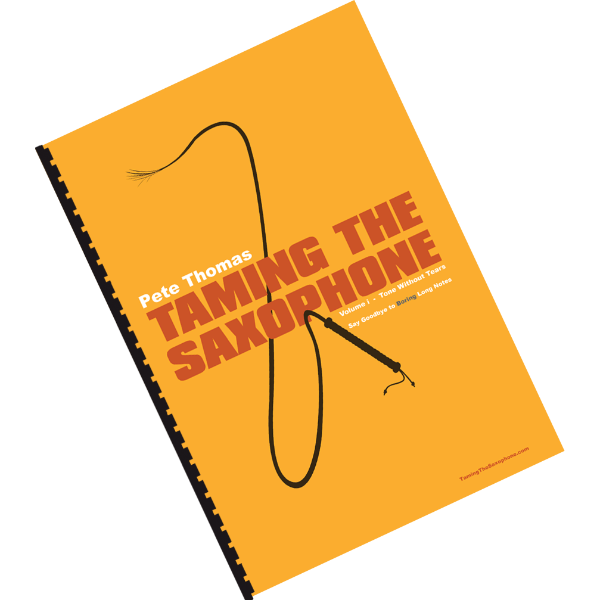Tone Without Tears: improve your saxophone tone
Getting a truly great sound on the saxophone is one of the most elusive targets for any player. There is no real shortcut, but there are some more efficient ways to get there rather than merely banging out long notes. Long notes are important, but here we are going to look at other, more interesting, ways to get there as well as how to practice long notes efficiently. First though, you need to make sure you are actually hearing your real sound. If you are in the position to record with reasonably good equipment and ideally add some room or hall simulation (ie a good natural sounding ambience), then recording can give you a very good idea of what the listener will hear.
What can differ enormously is the sound of different rooms and the way your saxophone tone is affected by those rooms. With a big PA system in the hands of someone who knows what they are doing (ie they have good ears and have “tuned” the reinforced sound to counter anomalies in the room acoustics) then you have a fairly level playing field to compare a recorded sound with live. If it’s a bad PA or a small room and you have no sound reinforcement at all, then yes there can be quite a difference between what you hear recorded at home and what is perceived in that room.
Even so, I believe that the way other people perceive the sound of your playing (in most environments) may well be closer to your recorded sound than it is to the sound you are hearing in your head once what is (a) entering your ears via waves in the air is combined with (b) vibrations through the mouthpiece material, teeth, gums, dental work etc.
As long as you take into account that there are so many variables everywhere and learn what they might be, you can start to do some analysis, but you’ve always got to take the conclusions with a reasonable pinch of salt because it’s impossible to do any proper scientific testing. Just turning 30 degrees towards a curtain in your practice room can (apparently) completely kill certain frequencies.
However your perception (no matter how subjective and variable) is absolutely important. I agree that reeds that sound bad to you usually sound absolutely fine recorded or to another person a few feet away. The important thing to me is that a reed (or indeed a saxophone/or mouthpiece) that sounds good to me is incredibly important as that is what inspires me to play better and practice for longer.
